

Shoulder pain, back pain, neck pain, hernia, lumbago, etc, as well as tennis elbow, golf elbow, RSI, hip pain, knee pain, limb pain, joint pain, body pain, stomach, head or chest pain; sooner or later everyone will experience physical pain. What not everyone knows is that acupuncture and Tui Na massage are very effective means of dealing with acute or chronic pain.
What is pain?
Regular medical research has discovered that pain signals are transmitted by specialized cells of the nervous system. These specialized cells are present in the skin and other body tissues. They respond to injury, inflammation, or tissue damage. Once activated, they send a signal to the nervous system that carries the signal through the spinal cord to the brain, where it is interpreted as pain.
Chinese medicine has a different view of pain. In a healthy body there is a balance between Yin and Yang and between Qi and blood. Qi and blood flow freely and abundantly through the body and meridians. If there is not enough Qi and blood, or if Qi and blood stagnate in a certain area, an imbalance occurs in the body so that the organs no longer function optimally and disease and pain are the result.
The essence of the Chinese view of pain, regardless of where it is located or what caused it in the first place, is expressed in the well-known Chinese expression: “Tong ze bu tong, bu tong ze tong”. Which means as much as: “If there is free flow (of Qi and Blood), there is no pain; If there is no free flow, then there is pain.” The treatment will therefore always focus on restoring the free flow of Qi and Blood, which reduces or eliminates the pain. This principle applies not only to physical pain, but also to emotional pain.
Acupuncture and Pain
What can you expect from an acupuncture treatment regarding pain?
Eliminating the pain or giving as much relief as possible
Reducing the pain level
Improving coping with the pain
Regulating the emotions (Regardless of the cause of especially chronic pain, feelings of frustration, anger and fear can intensify the pain.)
More energy
Be able to perform more daily activities
Improving quality of life
Reducing dependence on medication
According to the theory of Chinese medicine, acupuncture points are connected to organs and specific areas of the body. In the case of pain, the aim of the treatment is to select points on the meridians that activate the Qi and blood circulation in the affected area and balance the Yin and Yang. Acupressure (the massaging of points) and moxa are also used during the treatment.
There are many different treatments for pain. It is always necessary to look for the treatment that best suits the situation. For example, the treatment of acute or chronic complaints often differs. In acute pain, acupuncture provides rapid relief or elimination of the pain in almost all cases and promotes a speedy recovery. In chronic pain, the focus will initially be on relieving the pain, strengthening the affected area and addressing the underlying causes.
At practice De Witte Os, a personal treatment plan is made to relieve and solve pain complaints.
During an intake interview, the nature of the pain complaints is discussed in more detail and some additional diagnostic questions are asked. In combination with the pulse and tongue diagnosis, this creates a good picture of the current situation and a personal treatment plan is drawn up.
Are you curious about how acupuncture can help you? Then make an appointment for an intake interview.
Research on acupuncture and pain
The view from traditional Chinese medicine is different from the western or regular medical view. As more and more people use Chinese medicine, there are also more and more people who want to know how Chinese medicine works. This can be done by delving into the theory and principles of Chinese medicine such as Yin and Yang, the 5 elements, 6 divisions, etc. Another way is to look at Chinese medicine from a Western perspective and try to explain how it is viewed in the Western world. may Chinese medicine work.
For example, scientists in collaboration with Chinese doctors in China and other countries have been trying to find out why acupuncture is such an effective treatment for pain since the 1970s. Various scientific studies and clinical trials have been carried out for this purpose. The results seem to support the theories of traditional Chinese medicine. The World Health Organization (WHO) has now also compiled a list of conditions in which acupuncture is a proven effective treatment method (click here for an overview). The most common western theories regarding pain and acupuncture are listed here.
Pain impulses travel along meridians
The first theory is that most pain impulses follow the same path as the Qi circulation (i.e. along the meridians). It is an objective fact that pain is always transmitted along certain pathways. These routes are closely related to the meridian theory of Chinese medicine.
Pain-gate theory
Another theory suggests that pain impulses are blocked by acupuncture from reaching the spinal cord or brain at various “gates” in the nervous system. Research studies have shown that both the peripheral and central nerves are very important in pain relief through acupuncture.
Stimulation of endorphins
A third theory suggests that acupuncture stimulates the brain’s production of polypeptides that reduce pain sensitivity. Scientists have discovered that one of the possible mechanisms is that acupuncture increases the release of natural pain-relieving molecules known as endorphins by the brain. These are very similar to opiates (such as morphine), which are powerful pain relievers.
Acupuncture thus achieves its effect by working with the body’s own chemicals, instead of adding synthetic chemicals. This approach has several advantages over chemical composition drugs.
(Source: freely translated from Sun Pei Lin, Treatment of pain with Chinese Herbs and Acupuncture, Elsevier Limited, 2002)
Acupuncture and bodywork can contribute to the resolution or reduction of psycho-emotional complaints. In his book ‘Heart of Acupuncture’ Bruno Braeckman says the following about this:
Important ancient Chinese medical texts confirm: “Emotions are the most important cause of illness.”
The original acupuncture paid much more attention to the emotional and spiritual backgrounds of health and illness. The scientific ambition of modern Chinese medicine has led to the “purification” of these aspects from current acupuncture.
However, experience shows that acupuncture is a precise and effective means to vent stagnant emotions and thus restore the free circulation of Qi, of joy in life and health.
The usual term for “illness” in Chinese is Bing. However, precisely translated Bing means “disorders of the Heart”, which undeniably means that the body becomes ill mainly due to mental, emotional or spiritual causes.
Deficiencies of our natural consciousness aspects, for example due to incorrect deep beliefs, inevitably lead to weak organ functions. With acupuncture, these deficiencies can be detected and restored, so that one can (once again) enjoy his or her full potential.
This is the highest form of medicine, ‘Feeding the destination’ also known as ‘Bu Ming’ in Chinese.
Are you curious about how acupuncture can help you? Then make an appointment for an intake interview. Or read more about the treatment of disruptive emotions and associated complaints with acupuncture.
Excessive or long-lasting emotions (Qing) can be pathogenic, especially if we label them as “negative” and fight them. At first, this will hinder the free circulation of Qi in certain meridians, but quite quickly these subtle disrupted energies penetrate inwards to disrupt organ functions there as well. In this way, persistent recurring or intense emotions can lead to health problems. Fear, sadness, guilt, hatred, resentment etc. cause a feeling of tearing off, loneliness, tensing up, stiffening up, shrinking… contrary to the natural, life-giving, warm, radiating and connecting effect of the feeling of love that is the basis of life and health.
“Ghosts” or Gui (pronounced: gkwei) are compulsive behaviour patterns that arise from unprocessed emotions or traumatic experiences. Almost everyone walks around with small or large ghosts: everyone has experienced something that left a deep impression that can be the cause of a physical or psychological function going off the rails.
In threatening situations, a reflexive reaction can be a necessary self-protection: fighting for one’s life, jumping away from an oncoming car, but also erasing, ‘forgetting’ unbearable events (such as child abuse or incest).
The painful experience (physical and/or emotional pain) is often not ‘processed’ in the original situation and remains imprinted as a snapshot in the subconscious.
A new stress experience can – sometimes years later – reactivate this experience and provoke the same reflexive reaction. This reaction pattern, which may originally have been necessary and appropriate, is no longer so. If it is permanently activated, this emotional charge shows itself as a Gui (ghost), a compulsive behavior or a physical complaint.
This can be compared to Post Traumatic Stress Syndrome (PTSD), in which the unprocessed emotions in the limbic system of the brain cause stress in the central nervous system or in the hormonal system.
According to Chinese medicine, certain intense emotions can penetrate into the Jing, the hereditary energy: so-called inherited ghosts. Modern epigenetics also proves that traumatic stress can leave traces in the genetic pattern. These are then passed on over several generations and are the cause of various complaints.
Fortunately, even this emotional charge can be detected and eliminated with acupuncture.
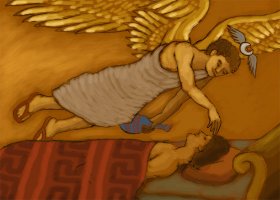
(reading time 5-7 min. – with tips and a Qi Gong exercise)
We can all sleep, although we were never taught to. Like food and sexuality, sleep is an instinctual basic human need. We spend a third of our lives in this state.
That the ancient Greeks were already fascinated by sleep is evidenced by the fact that sleep was personified in Greek mythology by Hypnos. Hypnos is the son of Erebus (the Darkness) and Nyx (the Night) and twin brother of Thanatos (the Death). His sons were the famous Oneiroi, who were responsible for human dreams.
In Chinese medicine, sleep is mainly the game of Yin and Yang, of the Heart and the Blood. When the Heart is calm and the Blood is abundant, the body and Mind (Chinese: Shen) can relax and sleep will be deep and revitalizing. The night is the domain of the Yin, of rest, relaxation, coolness, and of the dark . At night the Yin embraces the Yang, the activity of the day rests in the nourishing arms of the night. During the night, the body and mind recover from physical exertion and psychological tension, the blood is purified, hormones for numerous bodily functions and processes are produced, in short, during a good sleep the battery is recharged for the next period of activity. In other words: the Yin creates the conditions for the Yang. There is something natural about sleep. After all, it seems normal to fall asleep and then wake up refreshed. At least until there comes a moment for many people when they can no longer take sleep for granted: suddenly at night you suddenly spend hours staring at the ceiling or wake up often, sleep restlessly, wake up early or are plagued by intense dreams that they wake up exhausted in the morning.
The Chinese say Yin and Yang are opposites, they feed each other, merge into each other and keep each other in balance. For Yin and Yang you can also read night and day.
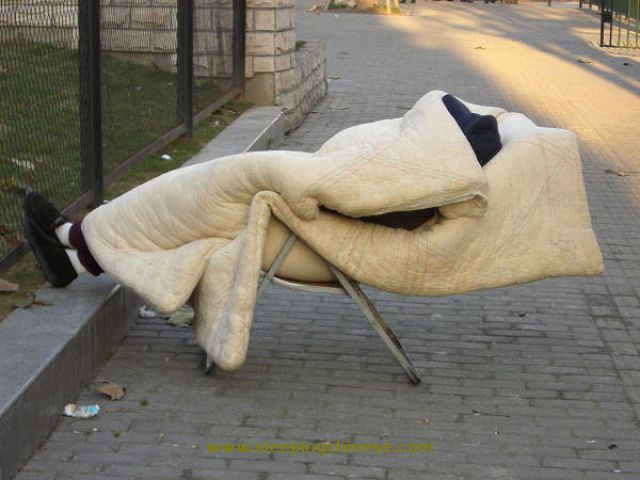
In our current society, we sometimes seem to forget that day and night are closely connected. There is a great emphasis on action, on doing, on undertaking, performing, always being ‘online’. The Yang, dynamic aspect of our existence is much appreciated and often affects the Yin. For example, a typical contemporary syndrome such as a burnout is often caused by the Yang that has literally burned up the Yin. With regard to sleep, it means that an overactive Yang ensures that body and mind cannot relax and sleep problems arise. The Yin can no longer embrace the Yang, so that the Spirit remains restless and people find it more difficult to fall asleep, wake up often, have violent dreams, sleep restlessly and wake up unrested. Another possibility is that there is too little Yang, often in combination with emotional complaints, so that people are tired but cannot sleep or sleep very superficially.
Poor sleep can also have other causes such as jet lag, change in the weather, sleep hygiene (eg too hot or cold bedroom, too much coffee, alcohol, etc.) or because of asthma, pain or itching. Sleeping problems also often occur in the case of stress and depressive complaints, whereby the emotional complaints worsen the sleeping problems, which in turn causes a worsening of the emotional complaints. In these cases, sleep will improve if the other conditions are treated or modified successfully as well. In practice, these complaints are often addressed at the same time because they are often caused by the same imbalance from Chinese medicine.
As in Western medicine, in Chinese medicine insomnia is a symptom, not a disease. Insomnia is a signal of an underlying imbalance between Yin and Yang. So we look for what causes the imbalance between Yin and Yang. Just as a detective searches for the perpetrator, the therapist searches for the pathogenic factor or, as it is called in Chinese, the Xie Qi, the bad or sickening Qi.
There are essentially 3 types of pathogenic factors in Chinese medicine. There may be an external pathogenic factor. That is a climatic factor that attacks the exterior of the body and causes complaints, such as external Wind, Heat, Cold and Vapor. An internal pathogenic factor disrupts the internal dynamics of the organism, with emotions as the main pathogens and a third category includes pathogenic factors that do not belong to the external or internal pathogenic factors, such as e.g. radiation, a poor diet or, in the case of sleep, sleep hygiene.
At De Witte Os you can count on a personal approach to solve sleeping problems
During an intake interview, we go deeper into the nature of the complaints and a few additional diagnostic questions are asked. In combination with the pulse diagnosis and tongue diagnosis, the therapist gets a good picture of the current situation and a personal treatment plan is drawn up. The best result is achieved by coming to the practice for a few weeks in a row for an acupuncture treatment in combination with Tui Na massage therapy.
Are you curious about what acupuncture can do for you? Then make an appointment for an intake interview.
Fortunately, not all sleep complaints are difficult to solve and advice on sleep hygiene can sometimes already give a significant improvement in sleep quality.
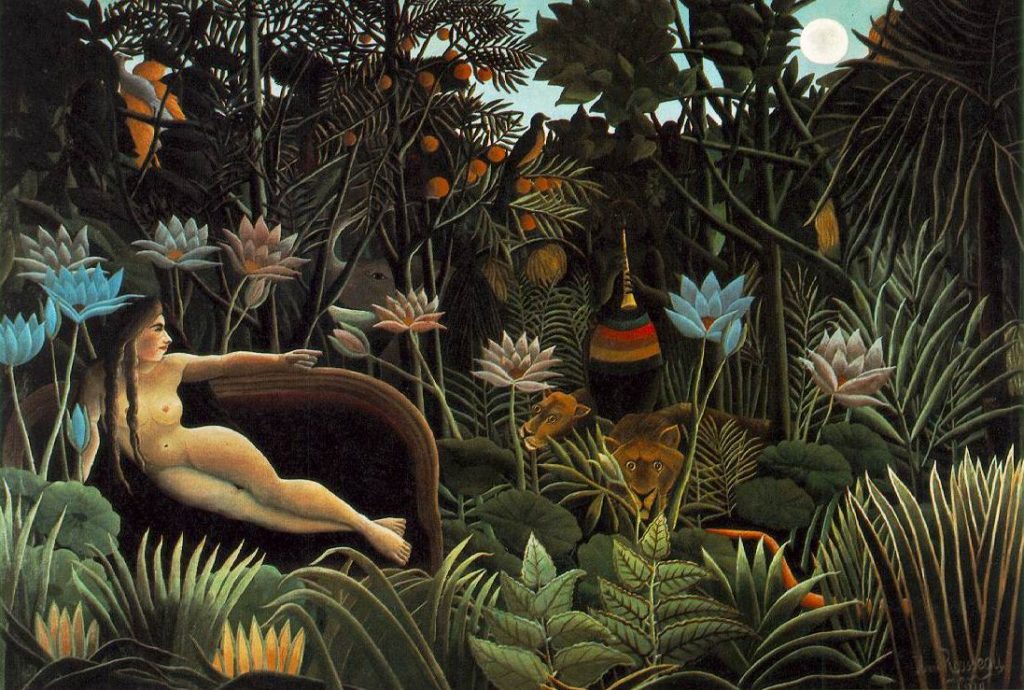
– Go to bed at regular times and get up around the same time every time. Ideally, you will be in a deep sleep by 11pm. That is the time that the detoxification of your body begins. If you often go to bed late, it is advisable to try to be in bed at least once a week around 23:00.
– Do not sleep short, but also not too long, 8 hours is sufficient. It is normal for older people to need less sleep than for younger people.
– Use the bedroom mainly for sleeping and intimate contact. Make sure the bedroom is dark, pleasant and quiet, if necessary use earplugs in case of noise nuisance. Watching TV or texting in bed activates the brain and disrupts the sleep impulse.
– You sleep better on a light meal. Dining after 8:00 pm often results in a restless sleep.
– What often helps is an evening ritual. Turn off the TV an hour before going to sleep to calm the brain. Take a warm foot bath or go for a walk. Finish the day in harmony, because it won’t come back: enjoy the things that went well and don’t judge too hard about shortcomings of yourself or of someone else. Tomorrow will probably be better.
– If necessary, listen to some relaxing music.
– Physical exercise during the day often promotes a good night’s sleep. Exercise late at night stimulates the blood circulation and brain, making you more awake.
– Avoid too many stimulants such as alcohol, coffee, cola, smoking, etc.
– Use pillows to make your position more comfortable.
– If you can’t sleep it is sometimes better to get up and do something in another room than to lie in bed and turn.
– A hot drink such as a glass of milk. This doesn’t work for everyone, by the way, so try something else if you find that it doesn’t make you fall asleep easier. A sleep tea before going to sleep can also help.
– Finally, the radiation from a cell phone can also disrupt sleep. It is recommended not to take it into the bedroom.
The Taoist physician Ge Hong (3rd century AD) suggested a number of exercises to treat insomnia. I don’t want to withhold this series of Qi Gong exercises:
1) Lie on your back, with your knees bent. Use the hands on the knees to move toward the chest, breathe normally. Stay with your knees on your chest for 1 minute. Then straighten the arms and legs and place them at the sides of the body.
2) Still lying on your back, extend the arms above your head as you inhale. On the exhale, bring your hands down and massage the chest and abdomen. Then relax the arms and place them at the sides of the body. Do this 5x.
3) Still in the same position, make fists of your hands and place them, each on 1 side of the spine, as high as possible along the spine towards the shoulders. Take 3 deep breaths and move the fists down a bit. You do this up to the lower back, where you take 5 deep breaths. Then place the fists along the tailbone and take another 5 deep breaths.
4) Lie on your stomach and place the hands under your stomach. Breathe in and out slowly and pause after each breath. Relax all muscles and release all mental and emotional tensions. Repeat this several times.
5) The sleeping position: The Taoist Deer sleeping position, which is very similar to the Lion pose from Buddhism. Lie on your right side and bend the right arm at the elbow, palm up at face level. The left arm rests on the side of the body, with the elbow on the left hip, so that the hand dangles in front of the abdomen. The right leg is straight, while the left knee is bent and rests on the bed in front of the right hip.
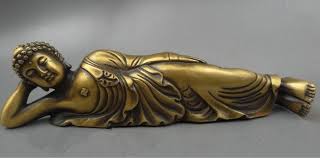
Curious about what acupuncture and Tui Na massage therapy can do for you? Then make an appointment for an intake interview.
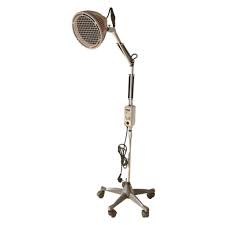
In the practice, a moxa lamp is present. The warmth of this lamp is really beneficial for the body and mind and is experienced as very pleasant. The Moxa lamp also known as the “wonder lamp” and consists of two mineral plates each with 33 minerals that are essential for carrying out all biological processes of the body. The lamp produces electromagnetic waves that are recognized and absorbed by the body and that strengthen the cell metabolism of the body.
The Moxa lamp:
It is possible to use the moxa lamp as a separate form of therapy, especially when there is little energy present. In my practice, I use the moxa lamp mainly as support for a Tui Na massage or an acupuncture treatment.
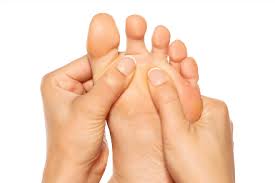
At our feet there are reflex-zones that correspond with all parts of the body. Foot massage is a technique in which pressure is applied to reflex-zones on the feet to generate reactions in the corresponding body parts. A foot massage stimulates the self-healing ability of the body.
A foot massage has a relaxing and beneficial effect, not only on the feet, but on the entire system. In case of a Chinese foot massage, in addition to the reflex-zones, the meridians and acupuncture points of the lower limbs are also included. During the massage weak points are treated intensively. It can sometimes be a bit painful, but the sensitive points show where blockages are or where there is a shortage of energy. Due to the intensive treatment on points and meridians, the stuck energy is set in motion or the required energy is added. That is healing and preventive for your well-being and vitality.
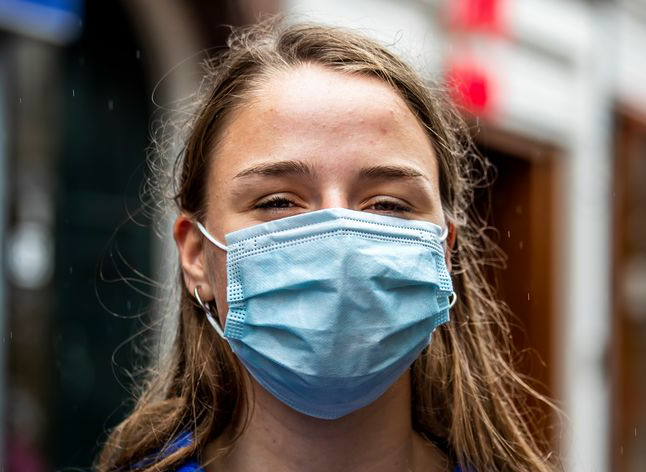
The current pandemic is a turbulent and uncertain time for many people, which can give rise to feelings of fear and frustration, or grief over the loss of a loved one, a layoff or bankruptcy. But what applies to all difficulties, whether personal or global, is that there are always new possibilities and opportunities.
The current situation presents us with many new challenges, some interesting and more than welcome and others downright annoying and unnatural. In any case, it gives us the chance to become more aware of all the ingrained patterns and habits from which we live and which we have come to experience as self-evident.
Another possibility that the pandemic offers is that it gives us the opportunity on a personal level, but certainly also on a social level, to ask ourselves what is really important and worthwhile. It may give us a little more time and space than usual to ask ourselves what your values are and how you can make choices that align with the deeper desires in your heart.
The pandemic also challenges us and invites us to face our fears. For example, at the start of the first intelligent lockdown, I lay awake all night thinking that there would be no more water available and that I would have to fight with my neighbor for a bottle of water in the supermarket. I only calmed down a bit when I realized that it could also be my neighbor who offers me some water if I have nothing left of my own. In other words, by seeing my neighbor, or anyone else for that matter, not as a threat, but as a fellow human being, space was created again. It felt like a deep reassurance to me that people can not only argue, but also help each other. That realization has opened my eyes that I am much more part of a community than I had ever imagined.
The pandemic will not be the same for anyone. Everyone will have to find his or her own way of dealing with this. With the possible nasty consequences, but also with the opportunities and possibilities that this situation also offers for each of us. If you ask me, it is an excellent opportunity to let go of all kinds of peripheral and distracting matters and to (re)take control over your own life. What is really important to me? And how do I shape that?
It is not uncommon for us to forget what is really important to us and sometimes you find yourself in a situation where you feel you have to make concessions to your own value(s) in order to survive. These are events that can cause physical and/or emotional pain and that affect your self-image and how you react to your environment. For example, on a personal level, think of a diagnosis for cancer, of alcohol abuse in the family, on a social level of racism and on a global level of a pandemic. All things that can put pressure on your self-image, which test your beliefs and can influence how you deal with yourself and the world around you.
In Chinese Medicine, the 8 extra meridians provide us with powerful tools that act on this and help change false self-image and unwholesome beliefs. They give you the opportunity to connect more with who you really are, to make choices from there and to deal with the world around you. Because these extra meridians contain and can tap into our purest essence, they are very useful to strengthen or restore the connection with ourselves in times of unrest, crisis and change. (Read more about the 8 extra meridians in Chinese Medicine here)
Are you curious about what acupuncture or Tui Na massage can do for you? Make an appointment here for an intake interview.
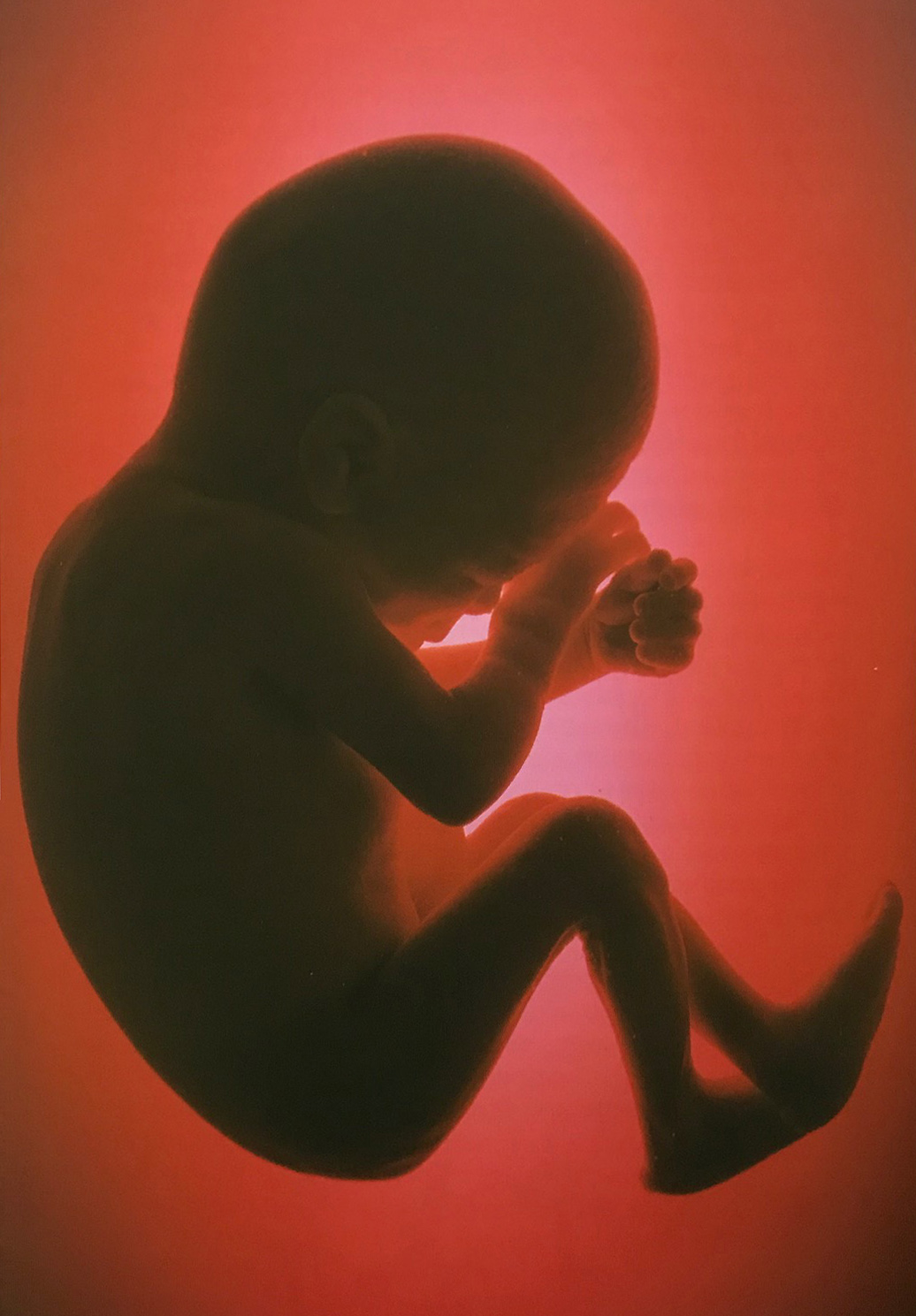
There are many reasons and causes why people lose connection with their origin or destiny. Think, for example, of social pressure, expectations from society or the family, or having to bear too much responsibility at a young age, e.g. from a parent who died early, addiction in the family or other childhood problems such as abuse, abuse, trauma in the form of an illness, accident or the loss of a loved one. All events that can block and stagnate the natural flow of energy (Qi).
If such a stagnation lasts for a long time or if it is deep in the system, this can translate into a range of psycho-emotional or physical complaints. It is then by no means always clear what the cause of the complaint is. Certainly in childhood events, which often leave a deep impression, the relationship between, for example, back pain and having to bear too much responsibility at a young age because one of the parents is absent, is not always obvious. Or, for example, chronic fatigue in someone who carries with him a secret of sexual abuse or mistreatment for his or her life. With this I do not claim that there is a trauma behind every chronic fatigue, but experience shows that many complaints have their origin in an event in the past, which has caused someone to lose contact with themselves or that this has come under pressure. stand.
As if the 12 main meridians weren’t enough, there are also 8 extra meridians in Chinese medicine. With these extra meridians, acupuncturists have a powerful tool at their disposal to help people reconnect with their Yuan Qi, also known as original Qi, their potential. Or as one of my teachers puts it; they help you reconnect with ‘The Unbroken Place’, a place of wholeness. Each extra meridian has its own character, its own power, which is connected to an archetypal energy and also shows specific symptoms when a system of a particular extra meridian is out of balance or blocked.
The 8 extra meridians are also called extraordinary or miracle meridians. These extra meridians are special for several reasons. For example, in contrast to the main meridians, they are already active in the womb. The Chong Mai, for example, already arises at the moment of the first egg division. These meridians therefore play an important role in the correct formation of the embryo and are vital for the constitution of every human being, say for the specific blueprint of each unique individual.
These meridians are not only active during the initial creation process but also support us during life. In Chinese Medicine this is called the 7 & 8 year cycle of the Jing. They help us navigate through natural processes of change such as puberty, adulthood, menopause, aging with dignity, and dying. Because these extra meridians contain and can tap into our purest essence, they are also very useful to strengthen or restore the connection with ourselves if we have lost it.
They not only support us in natural processes of change, but also to maintain our connection with ourselves during difficult moments or to restore it when we have lost it. Like a woman who loses her husband shortly after the birth of her first child and experiences life as unjust and hard as a result. She’s 63 now, but she still feels like she’s all alone. It makes her cranky and suspicious. After a few treatments on the extra meridians, she tells me that she no longer recognizes herself. Things that used to annoy her deeply don’t seem to affect her that way anymore, and she can look back with some pleasure on how quickly she was able to get out of her shoes. She has become a more pleasant person for herself and her environment. In addition, she talks more easily and openly about her deceased husband and talks more about her father with her daughter.
Or like a psychologist in the transition who realizes after 2 treatments that she herself has the key to a more balanced life.
Are you curious about what acupuncture or Tui Na massage can do for you? Make an appointment here for an intake interview.
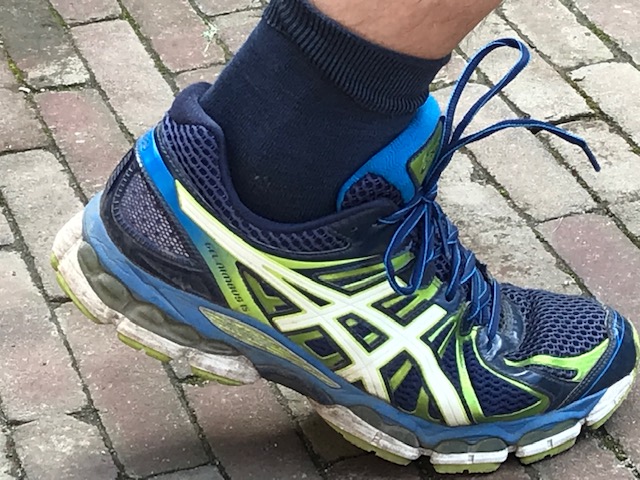
I go running about once a week. And to be honest, I have to admit that this is not always easy for me. Sighing and moaning, I struggle in half an hour to 45 minutes through a beautiful course in the Jekerdal on the edge of Maastricht. Likewise this afternoon. While I slowly catch up with a young man with an African appearance, I suddenly think of another African.
A few years ago I was in Amsterdam for a Chi Kung workshop by Peter ten Dekker. After the break we watched a Youtube video in which an African tribe goes on a buffalo hunt in the traditional way. A battle of attrition of 8 hours in which a chase on foot ends when the hunted buffalo collapses and can no longer continue. The buffalo is indeed faster than the runner, but because of the heat it also has to regularly seek shade to cool down. He’s not used to being chased for so long. The runner follows the buffalo’s trail at his own pace: not too fast and not too slow. By following the buffalo’s trail, the hunter slowly gets to know his prey. He sees what choices it makes, where it has rested, drank and whether it is getting tired. When he catches sight of the buffalo after 8 o’clock, it’s like meeting someone he knows. What follows is a death blow to the exhausted animal. Then the hunter takes the time for a ritual that revolves around respect and gratitude for what the buffalo has to offer.
The video has always stayed with me and I think about it every now and then. The awareness of the connection between hunter and prey moves me. The hunter does not feel superior to the buffalo, but feels respect and gratitude because he knows that he is dependent on it.
So today I thought again of that hunting African who, with his spear in his hand, travels kilometer after kilometer in the blazing sun, with nothing but the trail of the buffalo in his mind. I try to imagine what it’s like to run after a buffalo without any idea how long it’s going to take. My first expectation is that the very idea of what seems to me a hopeless undertaking will paralyze me, but the opposite is happening. I notice that my body relaxes more, the pressure to achieve something, read to keep it up until home, falls away. The only thing that becomes important is to keep following the trail. Somehow this simple focus makes my mind calmer and more open. I feel I can do this for a very long time if I have to. And what surprises me most is that walking takes less and less effort for me, something I was constantly aware of before. Not much faster than normal, but a lot lighter and a richer experience, I finally complete my lap.
I realize that in the video we have not only looked at an impressive hunt and an example of connection with nature, but also at a mental attitude that is very important in Chi Kung, namely a good balance between relaxation and effort. If you are too focused (on the buffalo trail) you will not last, and if you are not attentive enough you will lose your way. A principle that probably does not only apply during a Chi Kung exercise or when hunting a buffalo 😉.
Watch the video here:
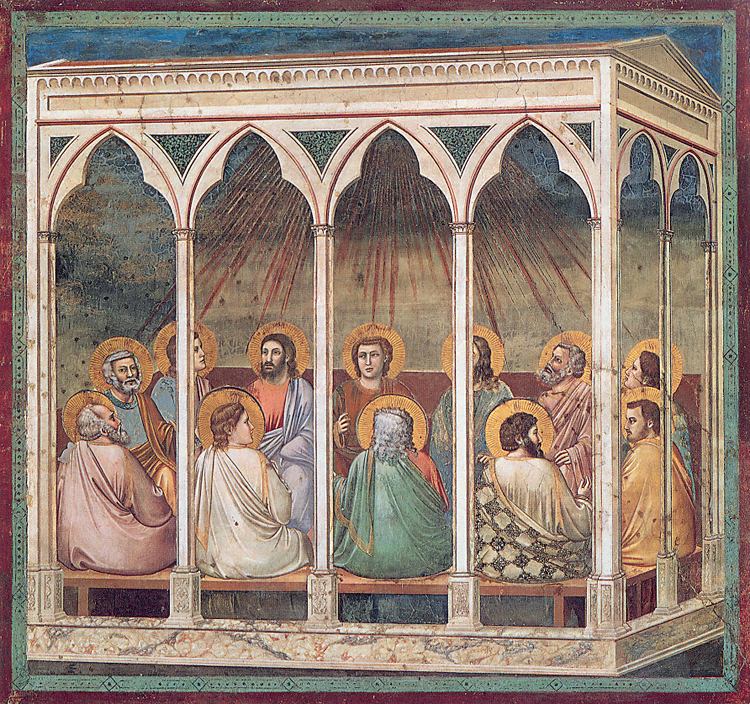
It’s Pentecost: the birth of the Holy Ghost.
I don’t think it’s a matter of belief. Rather, it’s a question of: Can you imagine the Holy Spirit being born in every human being you meet or see at a distance today, right now? Perhaps the hardest part is imagining the Holy Spirit being born in you right now. It reminds me of a statement by Thich Nhat Hanh in which he imagines that the future Buddha Maitreya, which means all-encompassing love, is not embodied in one person, but in a community.
Yesterday, a US missile launched into the skies for the first time in a long time. Elon Musk has long imagined that this is possible. So do we now.
Perhaps this power of the mind is also useful for people who are dealing with persistent thoughts, difficult emotions or even a traumatic experience. Or like now, when the coronavirus has ushered in an uncertain time for many people. Allow yourself to imagine what it is like to be able to deal with your thoughts, your emotions, your trauma, what it feels like not to suffer from it, to be able to deal with it. Allow yourself to imagine what it is like to realize your dreams during this time as well.
I myself am a strong believer in our imagination and its healing potential and motivating power. And yes, today I can also imagine how the Holy Spirit is born in everyone. It is a special feeling to walk down the street with that awareness. I realize it doesn’t really matter if it’s “true” or not. I look at my fellow man and myself anyway, today with different eyes. I can recommend everyone to give it a try. Imagine that…
…And how does that feel?
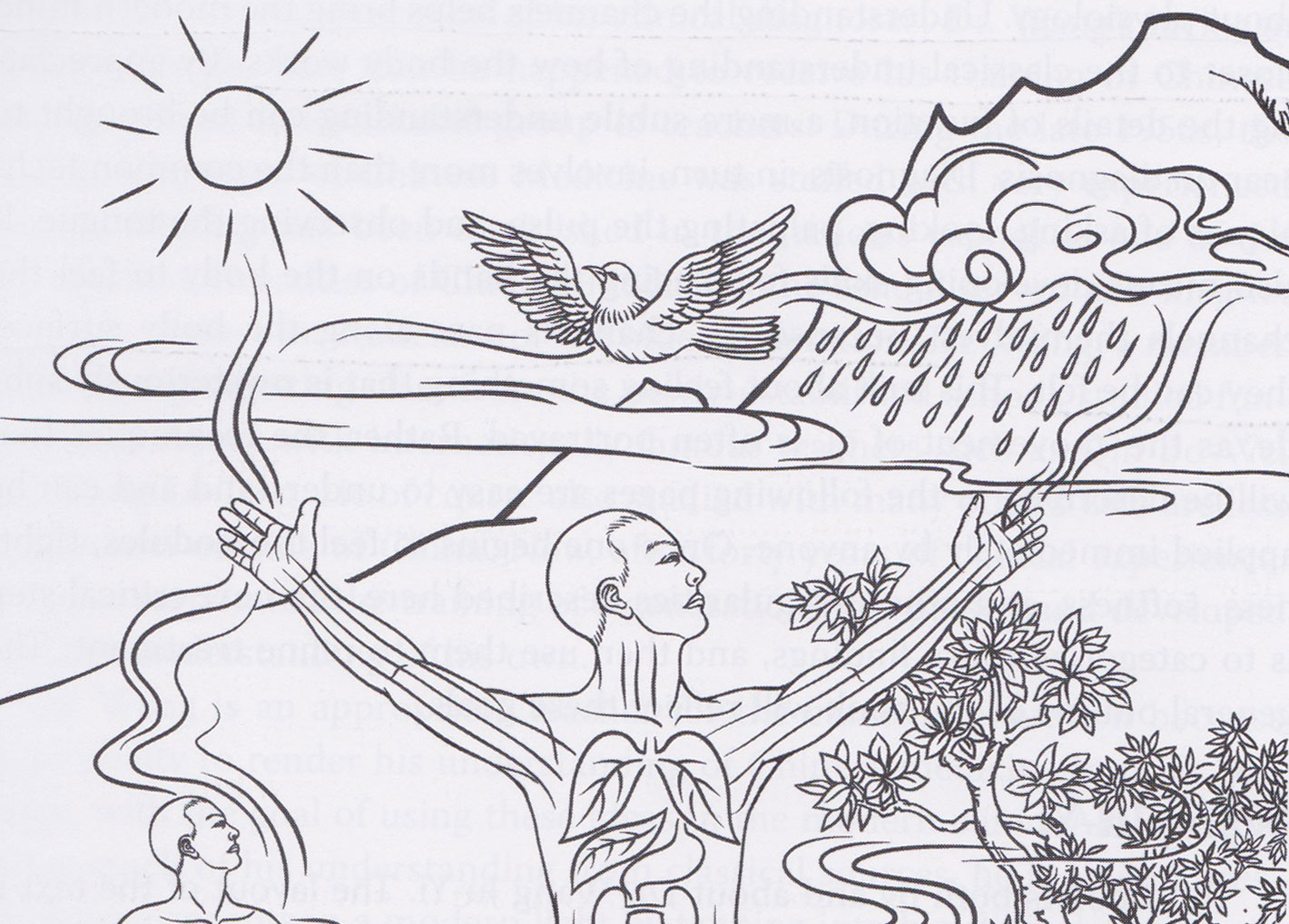
From Chinese medicine, the main characteristic of the coronavirus is that there is vapor in combination with other pathogenic factors such as Cold and Toxins. The main two organs associated with this from Chinese medicine are the Spleen and the Lung, or the Tai Yin meridian. The Spleen produces Vapor and the Lung stores the Vapor. This means that people with weak Spleen and Lung energy are more susceptible to more serious manifestations of the coronavirus. That is why it is important to strengthen or keep strong the Spleen energy in addition to good Lung energy in order to minimize the effects of the coronavirus.
What’s the best recipe for staying healthy in a time of health crisis? What can we do in a time like this to optimize our resilience? Immediately in the first three chapters of the Su Wen (one of three classical source texts of Chinese medicine) it becomes clear that good health means living in harmony with the laws of nature. By adjusting our behavior and tuning in to the rhythms of nature, our chance of a long and happy life is greatest.
In Chinese medicine, the lung is the organ involved in the essential rhythms in our body. Not only does relaxed breathing follow a natural rhythm, in Chinese medicine the Lung also organizes the other vegetative functions/rhythms such as digestion and circulation. So the right way of breathing not only ensures that your Lung Qi or Lung energy remains healthy, but is good for your entire system and ensures that many physiological processes in your body continue to run smoothly.
Chi Kung exercises are often done to the rhythm of the breath and not only ensure healthy lungs, but also revitalize our entire system. It helps us tune in to the natural rhythm within us, the rhythm of our body and mind. If health is the rhythm in accordance with nature, then illness means not in accordance with the rhythm of nature. By taking good care of our lungs, we can realign and harmonize with the rhythm of nature.
What can we do ourselves to keep our Lung and Spleen energy healthy? Below I have collected a number of preventive measures that everyone can do themselves to keep or strengthen their Lung and Spleen energy.
Note: This information is intended to supplement the regular information about the coronavirus or Covid 19 by the WHO and RIVM. If you have respiratory complaints, have to sneeze or cough and have a fever above 38 degrees Celsius, you should contact your doctor.
Chi Kung Exercises
Here you will find a Chi Kung exercise for the Lung and an exercise to strengthen the Earth system (Stomach and Spleen). The videos are in English without subtitles, but if you understand a little English they are easy to follow. The exercises are simple and are done slowly. If you have no experience with Chi Kung, I suggest that you learn the exercises step by step. You can watch the videos every now and then to learn something new or to see if you can improve something. During the exercises it is important that you do not force yourself. Keep to the limit your body tells you and breathe naturally. Even if you can’t perform an exercise completely right right away, it often already has a positive effect on your system, so don’t despair 😊. By doing them regularly you will see that they get better quickly and that you notice the positive effects. Lots of fun.
Chi Kung Exercise to Strengthen the Lung by Peter Deadman (Not everyone can see the video: here the direct link to the You Tube video of Peter Deadman: https://www.youtube.com/watch?v=Sv7IvgwR6hk ):
Chi Kung Exercise to Strengthen the Earth (Milt) by Mimi Kuo-Deemer (Here’s the direct link to Mimi Kuo-Deemer’s video: https://www.youtube.com/watch?v=5qMEjVsVx8M&t= )
Strengthening the resistance and the Stomach / Spleen system with Moxa
Moxa is a therapy to stimulate the effect of acupuncture points with heat and to strengthen Qi and Yang. By heating the acupuncture points Stomach 36 and Ren Mai 6 with a moxa stick, the immune system and the energy of the stomach and spleen are strengthened. A moxa stick is made from the dried herb Artemisia Vulgaris, also called Mugwort herb, which burns slowly and very hot when ignited. Keep the moxa stick at a safe distance from bare skin so that you experience a pleasant warmth. Heat each point for 15 minutes, 1 to 2 times a day. Note: a moxa stick generates smoke and has a fairly strong odor. Moxa sticks are for sale at my practice. Further instruction will follow upon purchase.
Steam bath with essential oil for respiratory problems
There are various essential oils that support the immune system and soothe respiratory complaints. A selection of essential oils are available at most health and natural stores. For a good choice from the range, you can ask for the best advice.
Steaming especially helps to resolve the symptoms of a (starting) flu. Depending on the severity and duration of the cold or flu, you can steam once or twice a day over a period of one to five days. Every time you’ve steamed, the symptoms should noticeably improve. If people in your immediate vicinity have a cold, you can also use this treatment 1 or 2 times a week as a preventative measure.
Necessities
Procedure
Tips for a healthy diet
Breakfast
Breakfast between 7 and 9 in the morning. Your digestion is the engine of your energy and it must be activated. So don’t skip your breakfast. So don’t go intermittent fasting and breakfast now.
breakfast hot: for example oatmeal with vegetable milk, rice pudding, hot soup, an egg, baked apples with cinnamon and ginger, pancakes made with vegetable milk. Before breakfast, take a glass of warm water with a squeeze of lemon juice or apple cider vinegar (that clears up Vapor).
Do not eat dairy for breakfast, that is vapor-forming. Also no fruit juice in the morning. Fruit juice has a cold energetic value and thus cools down your digestive system.
Vapor Causing Products
To prevent vapor formation, it is recommended not to eat the following for the time being:
Fruit: bananas and other tropical fruits
Grains: white flour products (reduce bread and eat more vegetables)
Junk food: it contains a lot of sugars and unhealthy fats
Legumes: roasted peanuts, peanut butter
Sugar: max 8 teaspoons per day processed and unprocessed
Fat: fried foods, fatty meats, butter, oil (in moderation)
Meat: pork
Dairy: milk, cheese, butter, yogurt
Avoid salads and cold products because they also demand a lot of energy from your digestive system, which can create vapour. Moderate with meat, rather eat fish.
Vapor Clearing Products
The products below prevent vapor or counteract vapor. So you can eat these fine at the moment.
Fruit: apple, grapes, cherries, pears, fresh dates
Grains: amaranth, millet, pearl barley/pearl barley (or Hato Mugi), rye, rice
Vegetables: Rettich capers, kohlrabi, corn, bok choy, pumpkin, radish, watercress
Spices: anise, ginger, coriander, cloves, horseradish, oregano, parsley, rosemary, white pepper
Garlic: garlic, spring onion, onion
Nuts: almonds, walnuts
Legumes: adzuki beans, peas, lentils, mung beans
Fish: such as anchovies, shrimp, mussels, eel, tuna, salmon
Pearl barley has little taste, but clears vapor and you can boil a small pan, put it in the fridge and mix it with something else.
Drink
Nettle tea, grated ginger with fresh lemon, thyme, sage and boiled hot water
Recommendations to strengthen the immune system and vapour-clearing
Honey with grated garlic. From a Chinese perspective, garlic clears Vapor Cold. From a Western perspective, garlic has an antibacterial effect, but there is still insufficient research into its antiviral effect.
Long drawn chicken soup with herbs (sage, thyme, fennel, maggi herb) is good for digestion and nourishing
Finally
In the near future it will also be possible for people who do not have cold complaints to make an appointment for an acupuncture treatment to strengthen the Lung and Spleen. In addition to any complaints caused by the current situation such as anxiety, poor sleep, fear, frustration, you can also go for “regular” complaints. Keep an eye on the website for opening times or send me an email for an appointment.
Dear people, take care of yourself and the people around you.
Citation: WillMountain.com – Newsletter 14 – Top Viral protection (16 maart 2020), Chinese Herbal and Qi Gong Approaches on Covid-19 webinar with Joshua Park and Luriko Ozeki (16 maart 2020), https://www.vrouwengeneeskunde.nl/2020/03/17/verbeter-weerstand-corona-chinese-geneeskunde/ , youtube-kanaal Peter Deadman, youtube-kanaal Mimi Kuo-Deemer.